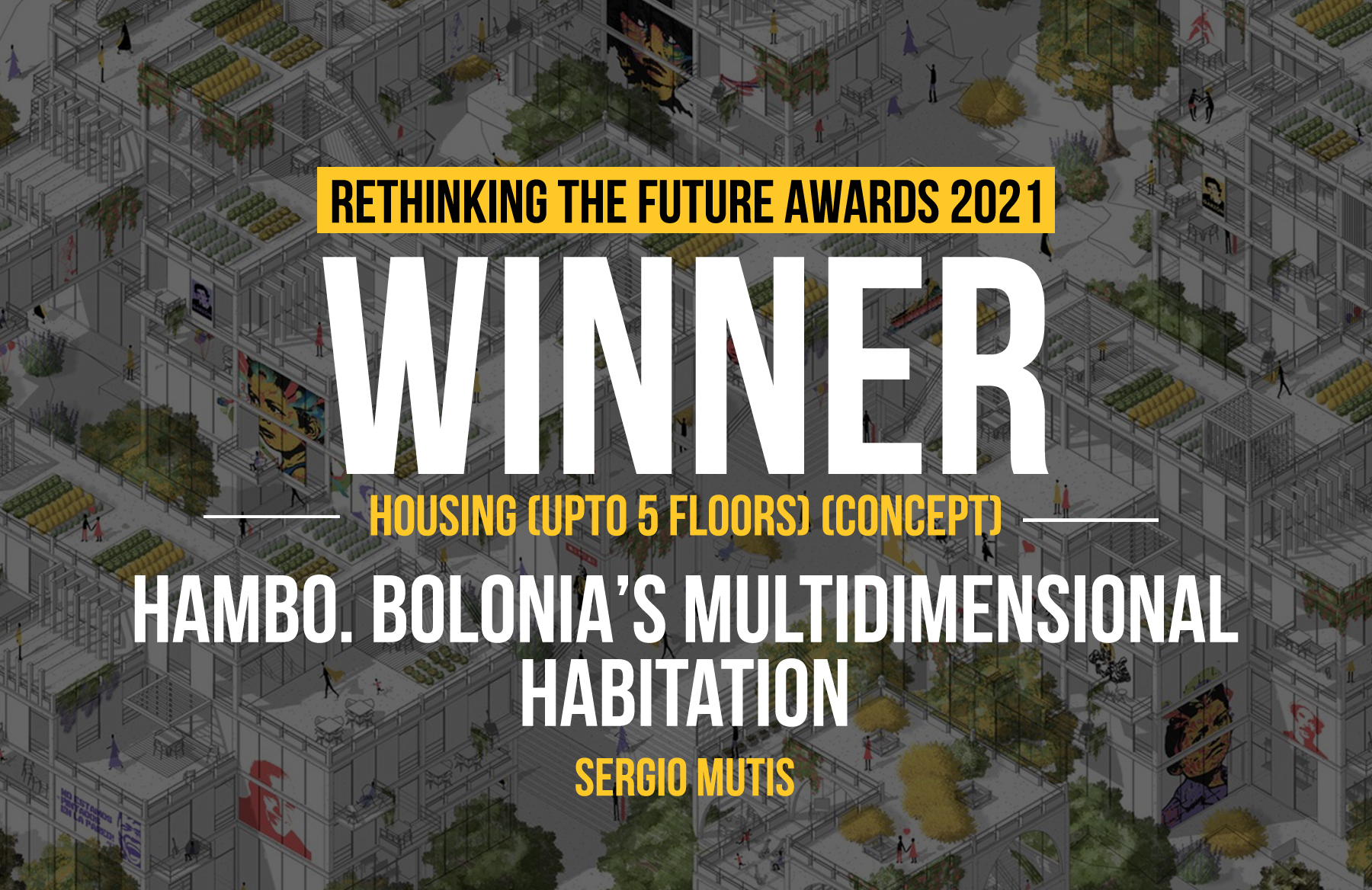Located in an ancestral place at Malinalco, México; surrounded by abundant vegetation, on the slope of a hill next to one of the three monolithic pyramids of the world, an Aztec ceremonial center, the site was carefully chosen by the clients due to its unique micro-climate and large trees.
Architecture, Construction & Design Awards 2020
Third Award | Housing (upto 5 floors) (Built)
Project Name: Casa Mague
Studio Name: Mauricio Ceballos X Architects
Design Team: Mauricio Ceballos Pressler, Francisco Vázquez
Area: 270 m2
Year: 2020
Location: Malinalco, Mexico
Consultants:
Photography Credits: Diego Padilla Magallanes
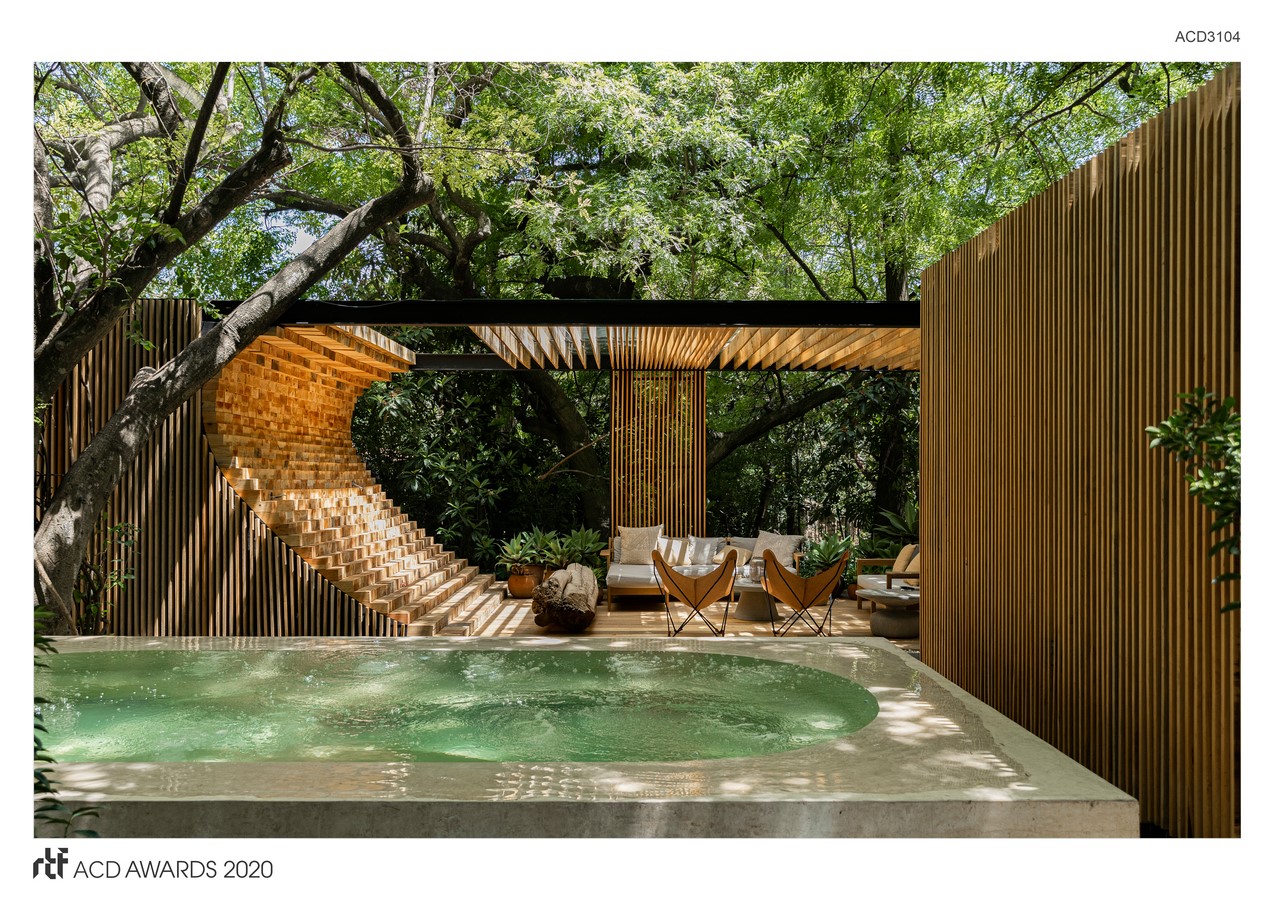
We approached the project by asking ourselves the following questions: How to create a construction with contemporary language within a pre-Hispanic context, which manages to merge with the natural and cultural environment, respecting 100% the existing vegetation? How to develop a flexible and timeless home? How to develop a construction that mimics nature?
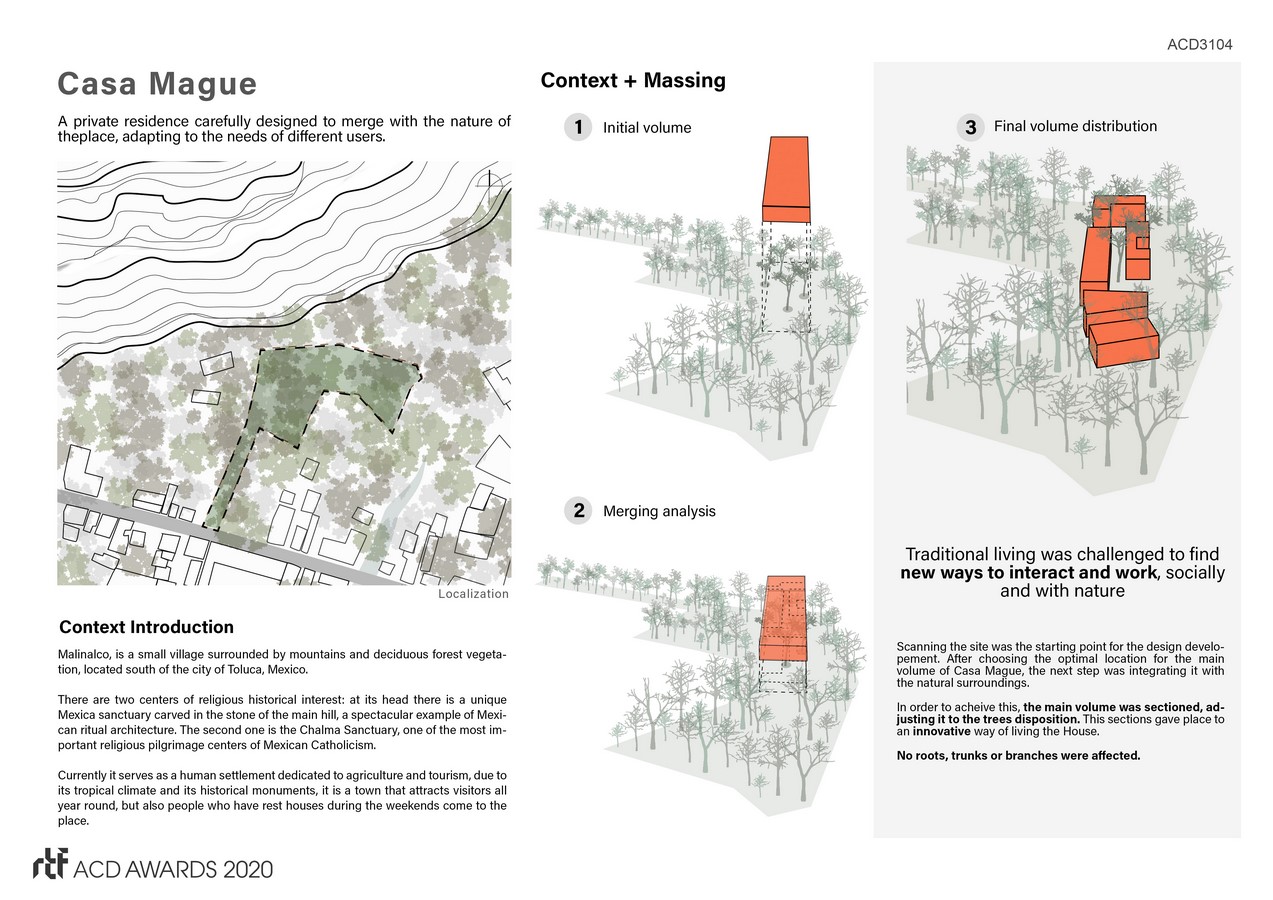
Starting from the pre-Hispanic cultural context, and the predominant connection with nature, the concept is based on the Mesoamerican worldview, where trees have a ritual meaning. The roots symbolize the connection with the underworld, the trunks the earthly human life and the cups the connection with the Gods. To emphasize this idea, the project is divided into three levels: the first one, a mirror base that gives continuity to the natural terrain and the roots of the trees, and allows the main volume of the house to give the sensation of floating; then, the living space, all on the same level where everyday life occurs; finally the natural outer cover formed by the foliage of the trees.
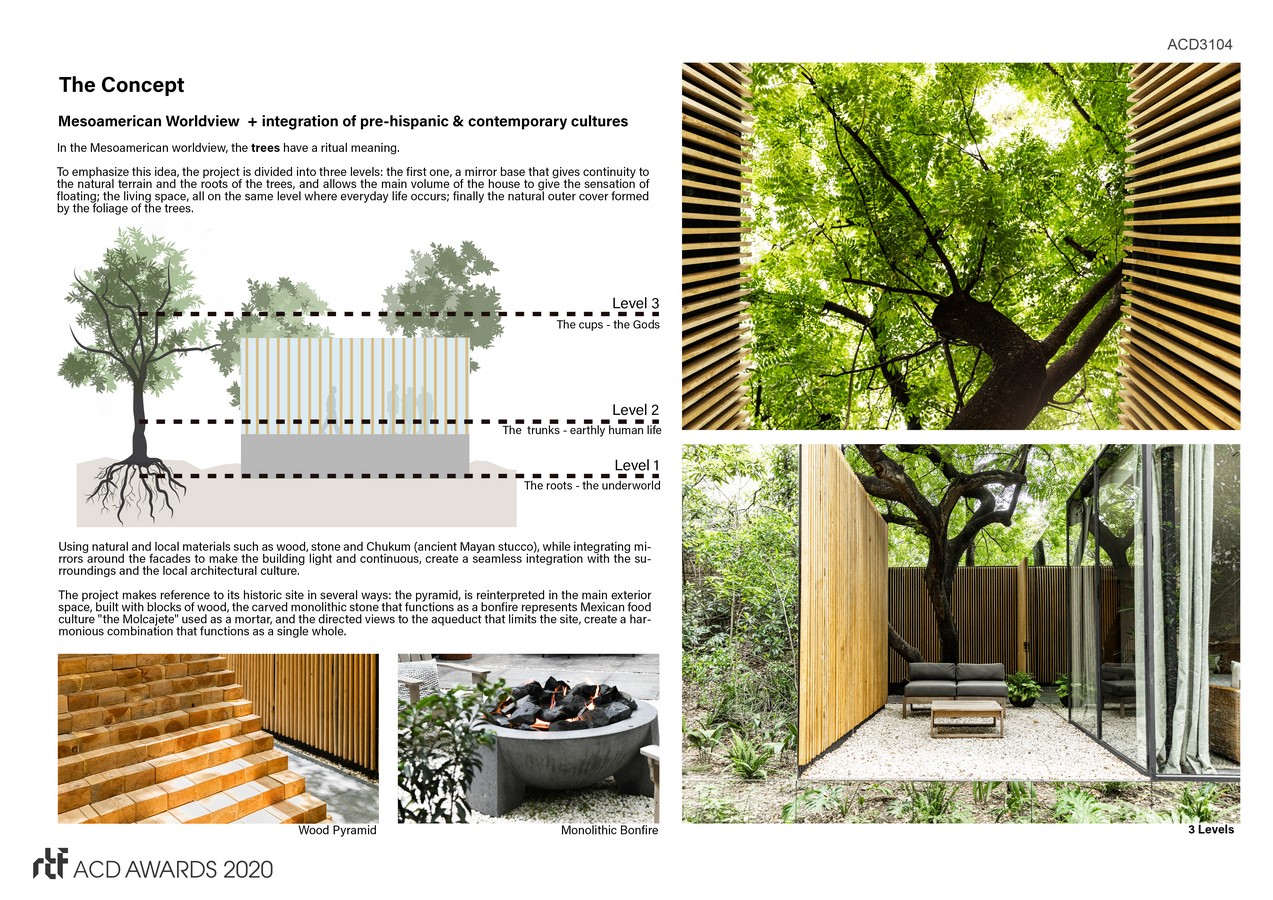
To avoid affecting the trees, the site was carefully scanned and different volumes were distributed around them. No roots, trunks or branches were affected, carefully protected. In this way, labyrinthine spaces emerged, continuously changing their perception according to the light and the time of day. The interiors of the house become exteriors but also the exteriors of the place dialogue with the interior to keep the inhabitants in contact with nature. Multifunctional spaces were designed so that they can be transformed according to the needs of the moment, where all kinds of activities can be carried out, from rest to work at home; this flexibility worked perfectly during the times of COVID-19. Using natural and local materials such as wood, stone and Chukum (ancient Mayan stucco), while integrating mirrors around the facades to make the building light and continuous, create a seamless integration with the surroundings and the local architectural culture. The project makes reference to its historic site in several ways: the pyramid, is reinterpreted in the main exterior space, built with blocks of wood, the carved monolithic stone that functions as a bonfire represents Mexican food culture “the Molcajete” used as a mortar, and the directed views to the aqueduct that limits the site, create a harmonious combination that functions as a single whole.
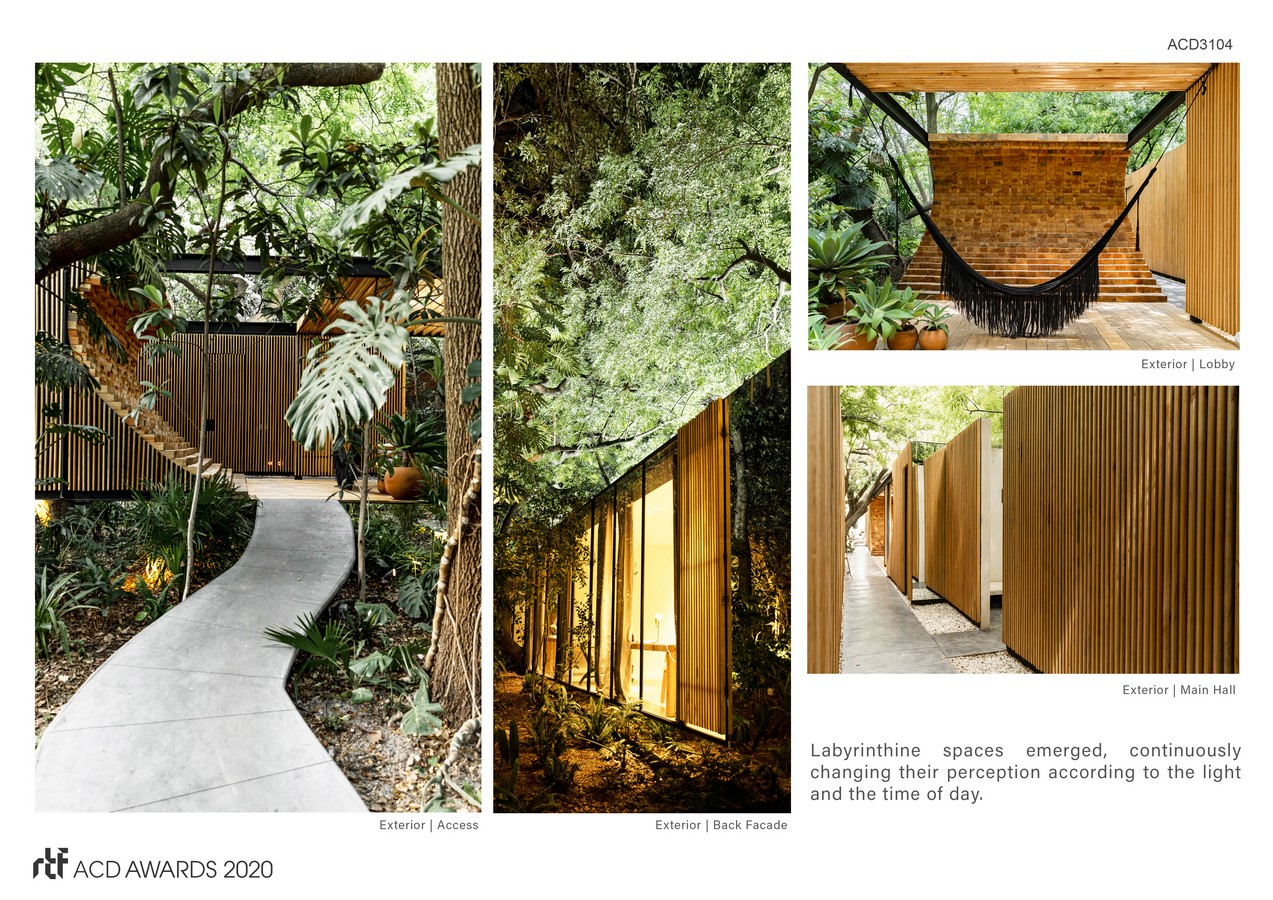
From a sustainable point of view, several needs were met: minimal footprint, rainwater harvesting, gray and black water treatment, reuse for irrigation, reduction of energy consumption through lights and sensors, management of waste for the creation of compost, and recycling of glass, aluminum and cardboard, using only local materials with low levels of VOC.

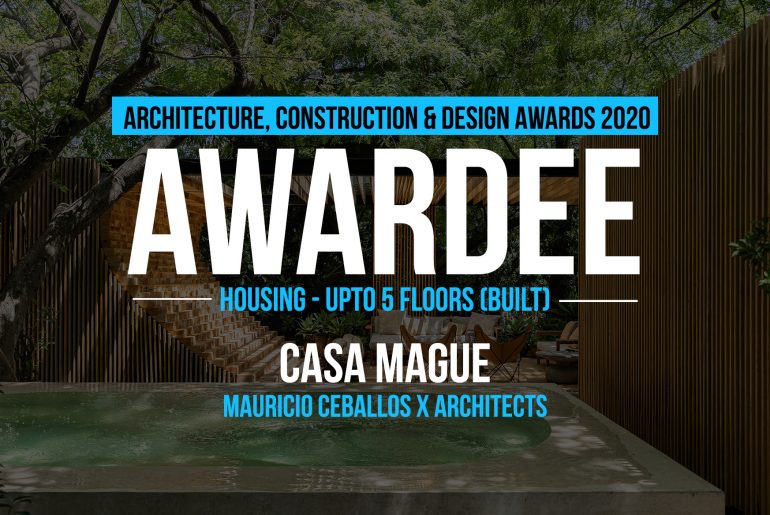
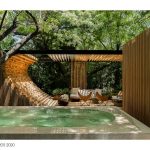
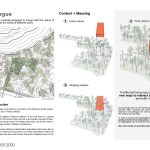
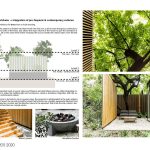
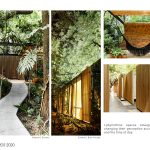
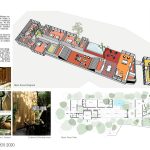
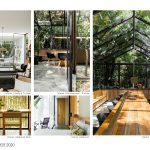



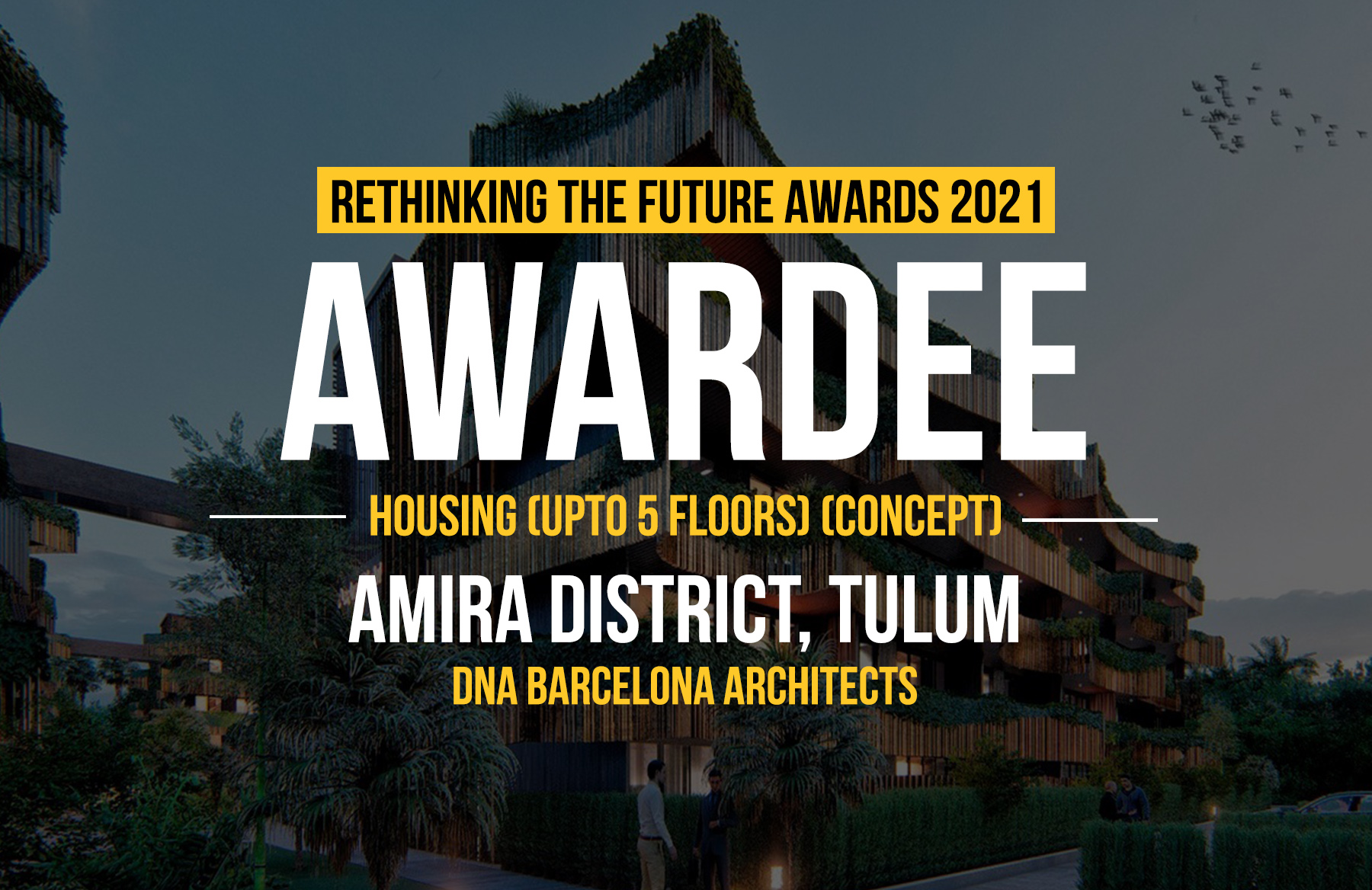
![Living The Noom By sanzpont [arquitectura]](https://awards.re-thinkingthefuture.com/wp-content/uploads/2021/04/Living-The-Noom-by-sanzpont-arquitectura.jpg)

